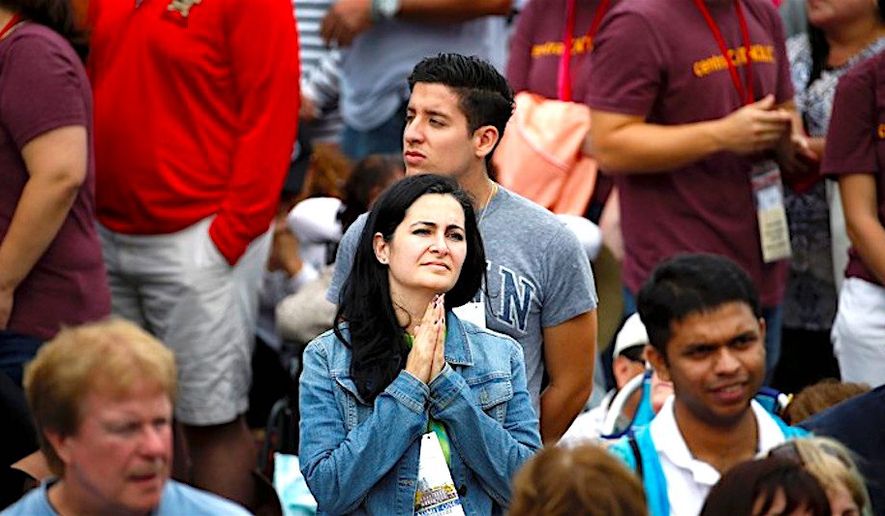
It is fashionable in some circles to purge the presence of God from everyday life, whether it’s by banning religious images or language in public places, or media coverage that implies that faith-based anything is not inclusive. Such thinking is not new. In 1966, Time Magazine published an edition titled “Is God Dead?” — suggesting that the faith was wavering, and the U.S. was on a path to secularization.
This has not happened in the 52 years that have passed since then.
“That question proved premature: The U.S. remains a robustly religious country and the most devout of all the rich Western democracies. In fact, Americans pray more often, are more likely to attend weekly religious services and ascribe higher importance to faith in their lives than adults in other wealthy, Western democracies, such as Canada, Australia and most European states,” writes Dalia Fahmy, a senior analyst for the Pew Research Center who examined findings from a massive poll revealing the religious practices of people in 102 nations.
“For instance, more than half of American adults (55 percent) say they pray daily, compared with 25 percent in Canada, 18 percent in Australia and 6 percent in Great Britain. The average European country stands at 22 percent,” Ms. Fahmy says.
“Actually, when it comes to their prayer habits, Americans are more like people in many poorer, developing nations — including South Africa (52 percent), Bangladesh (57 percent) and Bolivia (56 percent) — than people in richer countries. As it turns out, the U.S. is the only country out of 102 examined in the study that has higher-than-average levels of both prayer and wealth. In every other country surveyed with a gross domestic product of more than $30,000 per person, fewer than 40 percent of adults say they pray every day,” says the analyst.
ANOTHER ‘BITTER’ TRUMP ENEMY
Both President Trump and White House press secretary Sarah Huckabee Sanders have pointed out that U.S. residents have to show a photo ID before making a variety of purchases. So why not show an ID before voting? That suggestion does not appeal to the news media, particularly The Associated Press, which said Mr. Trump was making a “glaring false claim” — and that such IDs are required for purchases of alcohol, cigarettes and cold medicine.
The AP’s criticism, in turn, does not sit well with John Hinderaker, an attorney and founder of Powerlineblog.com.
“This is classic Democratic Party press coverage. The AP doesn’t want to deal with the fact that Trump’s point was correct. We have to show ID for all kinds of things; everyone has identification. We should have to show ID to vote, too. The logic is unassailable, and it doesn’t turn on groceries,” Mr. Hinderaker writes....
“Did the AP catch Trump in an untruth? No. Trump wasn’t making a specific point about groceries; he used groceries as an example,” Mr.
